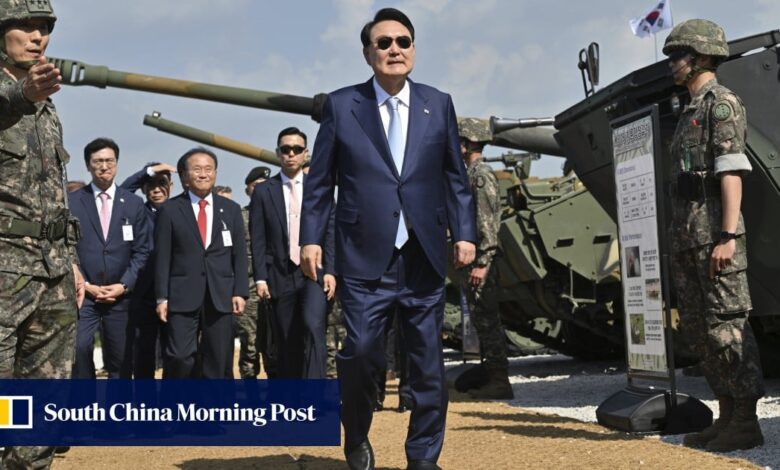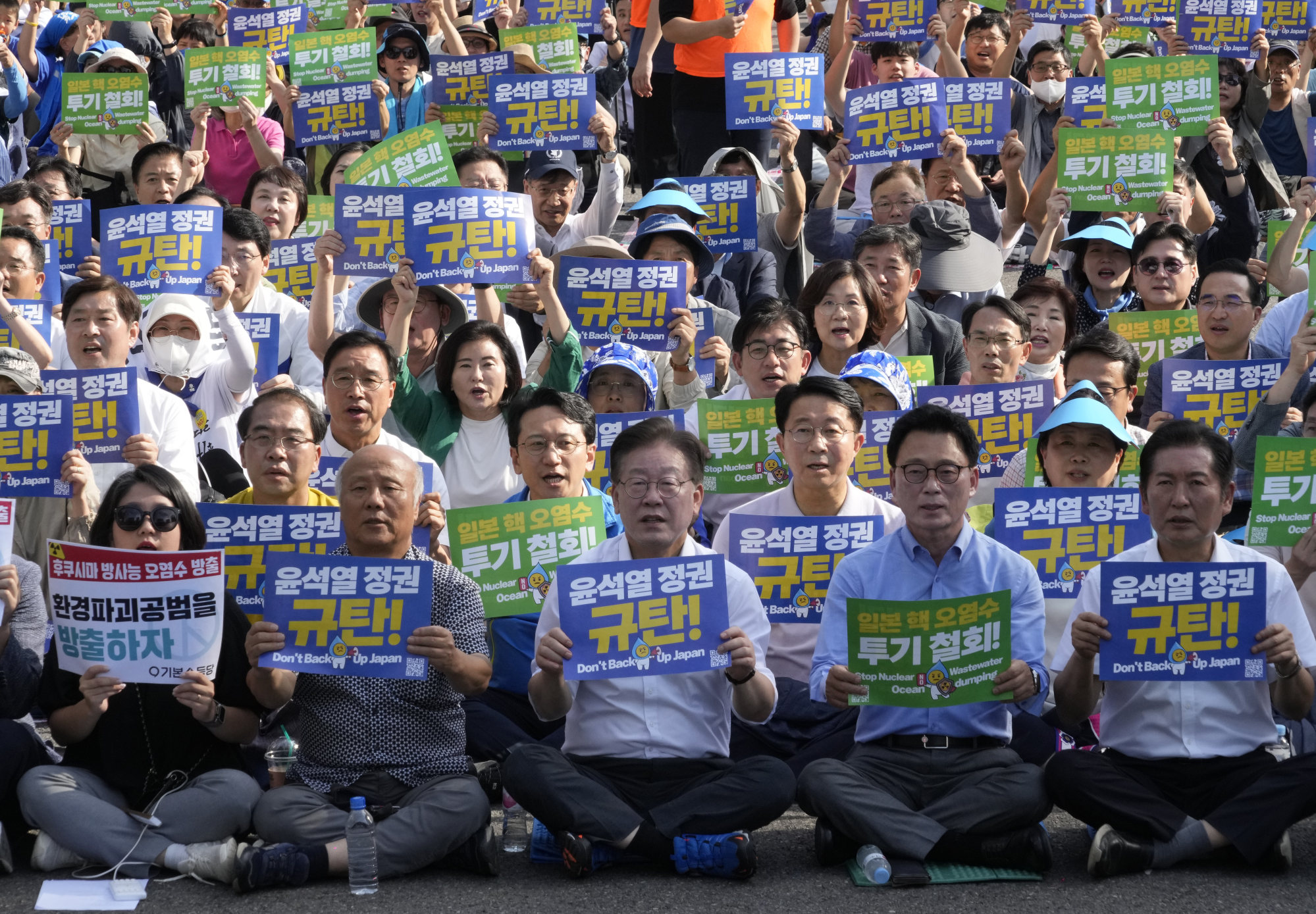As South Korea-US-Japan ties deepen, Yoon uses anti-communist rhetoric to decide who’s ‘friend or foe’

[ad_1]
Yoon’s sudden rhetoric, reminiscent of Cold War-era confrontation, has raised alarm among opposition politicians and puzzled many observers.
Political commentator Park Sang-byung said Yoon’s remarks were intended as a “rallying cry” for conservative voters before the April parliamentary elections. His ruling People Power Party has been flailing in opinion polls.

Others suggest, however, that the campaign would only turn moderates away from Yoon and his party, ruining his plan to topple the DKP’s parliamentary majority.
Yoon Sung-suk, a political-science professor at Chonnam National University, said the former state prosecutor-turned-president was taking a “friend or foe” approach to flesh out South Korea’s position amid great power rivalry.
Communist totalitarian forces and their opportunist followers … are inciting anti-Japanese sentiment and misleading
At the 60th anniversary on Friday of top scientific institution the Korea National Academy, President Yoon said liberal democracy and the market economy were the two forces that had supported South Korea’s peace and prosperity.
“However, our freedom is now under constant threat. Still, communist totalitarian forces and their opportunist followers, as well as anti-state forces, are inciting anti-Japanese sentiment and misleading as if the South Korea-US-Japan cooperation mechanisms produced at Camp David will put South Korea and its people in danger,” he said.
At a banquet for People Power Party politicians last month, Yoon said that “ideology is the most important thing” a country should pursue politically, stressing pragmatic policies were meaningless unless they were based on a firm commitment to a free democracy and a capitalist economy.
In an incident that shows how anti-communist ideology has taken centre stage in the ruling party’s political discourse, South Korea’s Defence Ministry last week relocated a bust of pro-independence fighter Hong Beom-do from the grounds of the Korea Military Academy, saying he was associated with Russian Bolsheviks.
Hong, a commander of pro-independence Korean guerillas, in 1920 spearheaded multiple victories against Japanese forces, including at the Battle of Fengwudong in Manchuria, China.
US-Japan-South Korea’s boosted 3-way security ties still face domestic hurdles
US-Japan-South Korea’s boosted 3-way security ties still face domestic hurdles
Shin Yul, a political-science professor at Myongji University, said Yoon could not afford “strategic ambiguity” in the mounting rivalry among world powers, which was why he was now striving to convince people of the importance of a free democracy.
“[However], I think Yoon needs to be more careful with his word choice in explaining the changing international order” and avoid using Cold War-era terms like “ideology” that raise eyebrows, Shin told the Seoul Sinmun daily newspaper.
[ad_2]
Source link





